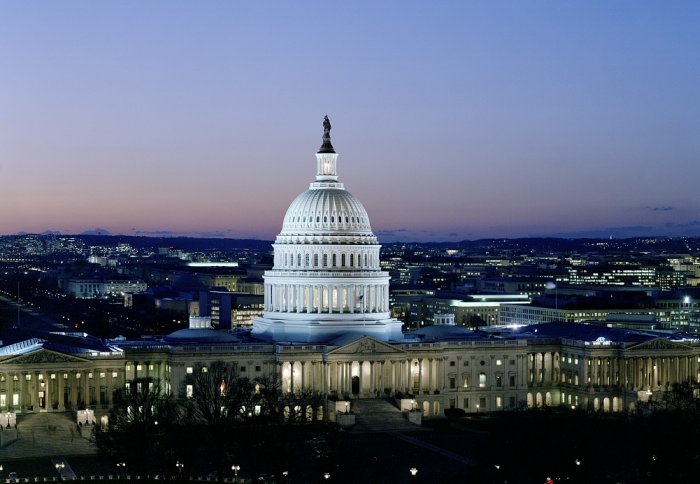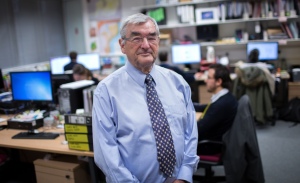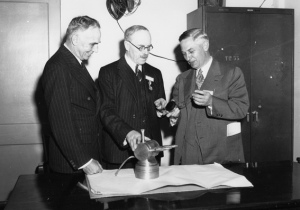US visa changes put under the spotlight

Imperial researchers have a long history of US collaboration
New changes in US visa policy may impede scientific progress, Imperial College London's President has warned.
Writing in the Chronicle of Higher Education, Professor Alice Gast highlighted that changes introduced to the US Visa Waiver Program earlier this year could exclude academics who have undertaken scientific or humanitarian work in Iran, Iraq, Sudan, Syria, Libya, Somalia or Yemen since March 2011.
Scientific cooperation improves and secures our way of life.
– Professor Alice Gast
President
Imperial’s Professor Alan Fenwick, an expert on parasitic disease schistosomiasis, was caught out by the new rules when planning to attend academic events in Washington DC and Boston in February.
As Professor Gast’s opinion essay explains, “After spending days navigating bureaucracy, making a series of appeals, and being helped along by the pleas of some well-connected friends, Fenwick was granted an interview with the embassy and finally acquired his visa. The delay caused him to miss giving his plenary at the Washington conference, depriving top U.S. scholars of Fenwick’s latest insights. Fortunately, he caught a flight just in time for his Harvard lecture.”
Deep roots of collaboration
President Gast wrote in the Chronicle of Higher Education: “Professor Fenwick’s experience should sound alarm bells in Washington. It serves as a grim warning to the international scientific community. If the new rules are not rethought, many others will receive the wrong message about American science and American scientists’ ability to collaborate with others around the world. When one of the world’s foremost experts on a tropical disease is treated like that, we should be seriously worried about the wider damage to American science and its reputation abroad.

Professor Alan Fenwick
“The proportion of scientific papers that are internationally co-authored has more than doubled in 20 years. One-third of American papers now feature international collaborators. As American and international scientists work together in their race to understand and defeat diseases, we should not erect unnecessary barriers to collaboration. Finding a solution to the Zika virus, a tropical disease that is spreading ever closer to the United States, is an urgent concern in which international scientific collaboration is essential. The need for worldwide collaboration was brought home to us during the recent Ebola crisis, when laboratories across the world worked tirelessly to bring the epidemic under control."
Special relationship

Sir Henry Tizard (centre) with MIT collaborators in 1940
Professor Gast said: “The United States has special relationships with the 38 countries that benefit from the visa-waiver program. These relationships have deep roots in cooperation and collaboration. One of my predecessors as head of Imperial College London, Sir Henry Tizard, cultivated such collaboration during World War II. In 1940, as German planes bombed London and Liverpool, Tizard led a delegation of scientists to the United States, armed with Britain’s best R&D in their suitcases. They shared discoveries and innovations in radar technology with their peers at the Massachusetts Institute of Technology, winning support from President Roosevelt’s adviser Vannevar Bush and the banker-turned-physicist Alfred Loomis. Their combined know-how, sharing, and openness helped turn around the Allied war effort in Europe and the Pacific. Tizard, Bush, and Loomis seeded a U.S.-led culture of mutual trust and cooperation that has flourished for decades.
“We see that culture flourish on the International Space Station and at CERN, where national rivalries and political differences are overcome in the name of discovery. Through collaboration we defeated smallpox and made a dent in the AIDS epidemic, and it is how we will overcome environmental threats and harness low-carbon technologies. Scientific cooperation improves and secures our way of life.”
The full article can be viewed in the Chronicle of Higher Education.
Article text (excluding photos or graphics) © Imperial College London.
Photos and graphics subject to third party copyright used with permission or © Imperial College London.
Reporter
Andrew Scheuber
Communications Division